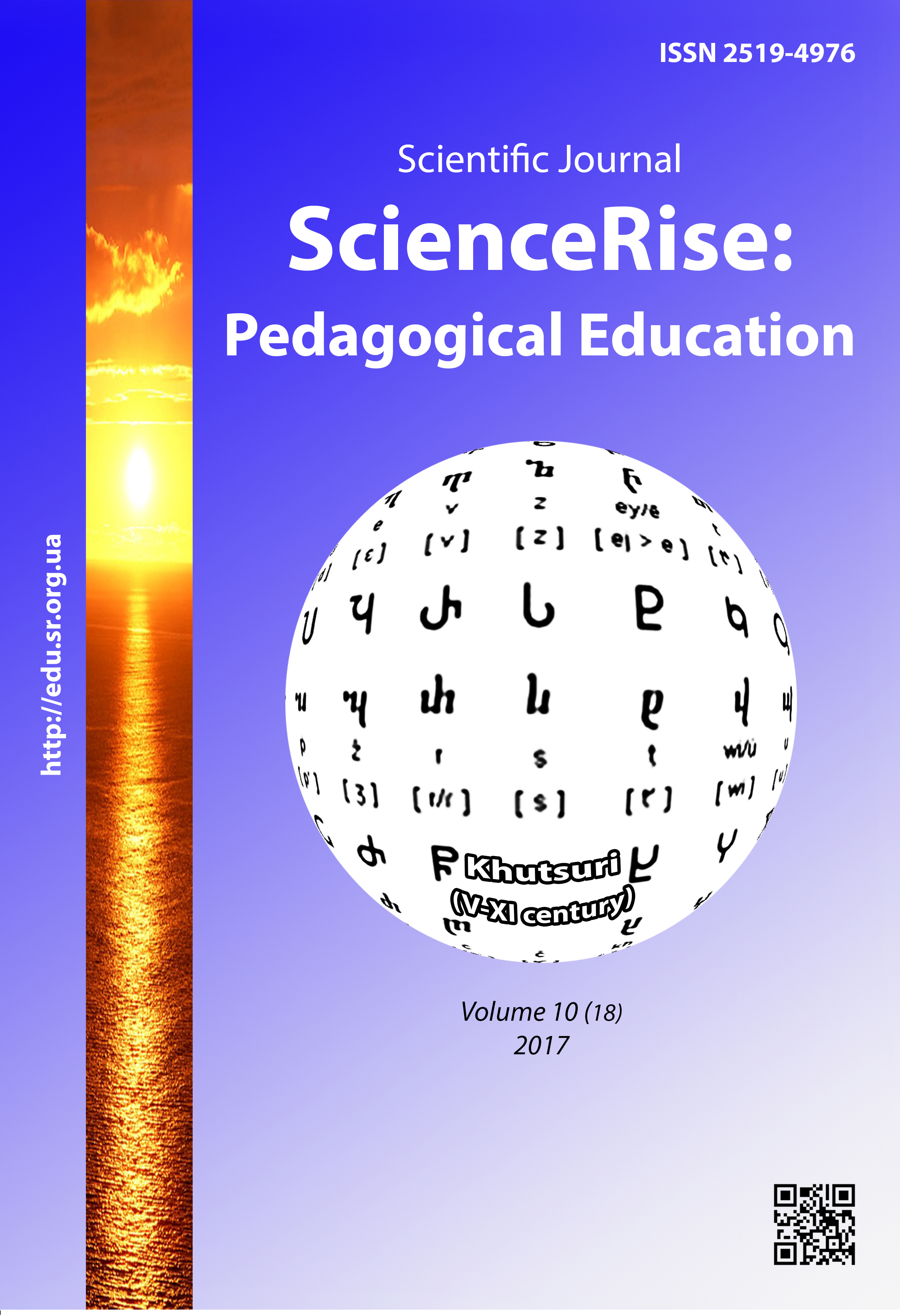Peculiarities of pedagogical experiment on realization of the project of stimulation of professional self-development of future masters of industrial training
DOI:
https://doi.org/10.15587/2519-4984.2017.113383Keywords:
professional self-development, professional self-education, pedagogical experiment, industrial training, educational environmentAbstract
The article is devoted to the disclosure of the peculiarities of the pedagogical experiment concerning the implementation of the project for the promotion of professional self-development of future masters of industrial training by means of self-education. The developed system allows to activate the professional self-development of the future master of production training by means of self-education. The development of the level of professional self-education affects the level of professional self-development. The pedagogical experiment, the purpose of which was to study the state and movement of professional self-development of future masters of production training, allows us to state the effective influence on the professional self-development of a future specialist, which is a more important task for an educational institution. The system of stimulation of professional self-development of masters of industrial training is an integral set of interconnected components: purposeful, informative, techno-methodical and productive
References
- Bekh, I. D. (2012). Reflection in the spiritual self-development of personality. Pedagogy and psychology, 1, 30–37.
- Markova, A. K. (1996). Psychology of professionalism. Moscow: Enlightenment, 308.
- Khmeleva, O. G. Elements of Transformation of Value Priorities in the Development of the Educational Educational Space. Available at: http://fpo.ru
- Kucheryavy, O. G. (2010). Professional self-education in high school. Kyiv: Education of Ukraine, 200.
- Andreev, V. I. (1988). Dialectics of education and self-education of a creative person. Kazan: Publishing House of Kazan University, 228.
- Ball, G. O. (2000). Humanization of general and vocational education: social relevance and psychological and pedagogical guidelines. Continuous vocational education: problems, searches, prospects. Kyiv: Vispol, 158.
- Derkach, A. A., Moskalenko, O. V., Selezneva, E. V. (2004). Akmeological culture of the future master: methodology and technology of development. Moscow: RAHS, 196.
- Dychkivska, I. M. (2004). Innovative pedagogical technologies. Kyiv: Academg. Issued., 352.
- Dubasenyuk, O. (2015). Professional pedagogical education: methodology. theory, practice. Vol. 1. Zhytomyr: View at ZHDU them. I. Franko, 400.
- Zyazun, I. A. (Ed.) (2000). Continuous vocational education: problems, searches, perspectives. Kyiv: View "Vipol", 636.
Downloads
Published
How to Cite
Issue
Section
License
Copyright (c) 2017 Yulia Belikova

This work is licensed under a Creative Commons Attribution 4.0 International License.
Our journal abides by the Creative Commons CC BY copyright rights and permissions for open access journals.
Authors, who are published in this journal, agree to the following conditions:
1. The authors reserve the right to authorship of the work and pass the first publication right of this work to the journal under the terms of a Creative Commons CC BY, which allows others to freely distribute the published research with the obligatory reference to the authors of the original work and the first publication of the work in this journal.
2. The authors have the right to conclude separate supplement agreements that relate to non-exclusive work distribution in the form in which it has been published by the journal (for example, to upload the work to the online storage of the journal or publish it as part of a monograph), provided that the reference to the first publication of the work in this journal is included.







